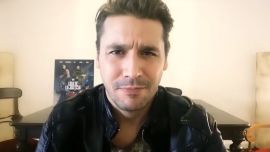Certain traditions are inescapable over the course of the long, sweltering Argentine summer. Harrowing credit card bills as one begins to pay off the excesses of the holiday period; needlessly prolonged live broadcasts from Mar del Plata on every news network as presenters harass beachgoers; oven-like public transport for those who stay in Buenos Aires – they are all essential customs of life in January, the month where at times the entire country appears to go into hibernation.
Football is no different, with the lack of actual matches compensated for with endless coverage of transfer gossip, pre-season preparations and similar filler content. Then almost every year, like clockwork, the doubts begin over whether the league will begin at all. This new year promises to be no different as 2020 commences with a bitter dispute between those in charge of the game over the fixture list.
It has taken more than two weeks for the Argentine Football Association (AFA) to muster its response to the Superliga authorities after the latter released, on the last business day before Argentina shut down for Christmas and New Year, the fixtures for final six rounds of the current season. But this is AFA – what the organisation led by Claudio ‘Chiqui’ Tapia lacks in quick reactions, it more than makes up in vehemence.
The dates of those final fixtures have caused indignation on Viamonte Street. Kicking off on January 24 and running through to the beginning of March, four rounds coincide with the pre-Olympic qualifying tournament which will determine Argentina’s presence or otherwise at the upcoming 2020 Tokyo Games.
Or will they? In a tersely-worded statement released Thursday, AFA officials implored their counterparts to suspend the start of the competition until the Albiceleste’s Under-23s have concluded their participation – they open with a Group A clash against hosts Colombia next Friday, with the last Final Stage match scheduled for February 9 – and hit out at the Superliga for failing to take the national team into account.
“The Argentine Football Association must express its profound concern with regards to the Superliga’s attitude in not agreeing the fixture calendar with it, taking into account the international commitments of our national team,” the statement reads. “This unfortunate and arbitrary attitude in programming the Superliga during the pre-Olympic tournament reveals evident disinterest and indifference to what our national team means, and the importance of Argentine football to our country in the next Olympics.
“The behaviour shown by the SAF directors, far from observing the spirit of collaboration and consensus that should exist between both institutions, puts at loggerheads the public interest in Superliga with our national team, causing unjustified harm to the economic interests that feed our dear Argentine football.”
It is frankly an insult to readers’ intelligence to sustain that this fixture clash has come as a surprise. The Superliga’s 2019-2020 dates have been public knowledge since the start of July – published even on the AFA’s own website. That at least was the stance of the Superliga itself, which hit back with its own statement pointing out, entirely justifiably, that they were merely following the calendar agreed by unanimous consent with clubs almost nine months ago. Organisers can hardly be blamed for wishing simply to fulfil its previously stated commitments, much less so just two weeks prior to the season’s restart.
What this ridiculous spat does expose, on the other hand, is the first internal battle in Argentine football since the arrival of Alberto Fernández to the presidency.
Unlike his predecessor, Mauricio Macri, the president has shown little interest in the sport during his (still extremely brief) time in office. He appointed former San Lorenzo chief Matías Lammens as Tourism and Sports minister, and so far the focus has been on grassroots level, as well as the perennial problem of away fans at matches.
But Superliga President Mariano Elizondo could be forgiven for fearing further intervention. Superliga, of course, was Macri’s brainchild, a hyper-commercialised new venture which ripped the Primera División out of AFA’s control (not to mention the television screens of millions of fan) in a conscious imitation of similar set-ups in Spain and England. While Macri remained in charge an uneasy truce held, but Thursday’s statement was not the first sign that relations are at a nadir, with the division’s ‘smaller’ clubs also going public with their grievances just before the New Year.
“Argentine football is suffering something which is not good, double leadership,” Lanús President Nicolás Russo, who alongside Argentinos Juniors’ Cristian Malaspina is leading the charge for reforms of the Superliga or even its abolition. “Splitting AFA and Superliga was desired in order to generate more income, a more transparent, calmer, more ordered football. Some of those things happened and many others did not,” he told Radio La Red.
“Right now, for us, the issue of the television contract is outdated. It has fallen behind. We must consider a completely new contract. In my opinion [the matches] should be available to all cable subscribers,” he continued. “This is no good for anyone. How are we going to get on for the next four years? If there is no solution, we will have to put an end to this story.”
Ultimately, whether it’s called the Superliga, Primera División or the League of Justice, ‘Argentina’s top flight continues to suffer perennial problems,’ remains the headline. Clubs are starved of income, a phenomenon aggravated by chronic inflation and devaluation over the last two years. With barely enough money in the bank to pay their staff, hitting out at the competition’s organisers is an option for clubs that rarely fails to make the headlines. Under pressure from all angles and deprived of political support, the Superliga’s authorities can only wait and see whether this apparent storm in a teacup blows over – or whether it proves to be just the opening salvo in the battle to extricate them from Argentine football altogether.





















Comments